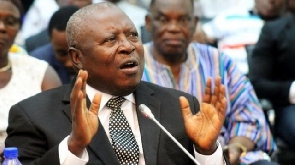“Boss!” probably you’ve heard someone calling you by this title or you yourself have used it several occasions on certain kind of persons. Well, if you happen to be at Kejetia or Kantamanto, you’ll definitely hear enough before you return home. In fact, I’m not a boss and never been one. Even though I’ve led large groups and traveled extensively to meet other people, I’ve never felt a single moment in my life that I’m a boss. Even my good friend who is called Peter Boss eschews being a boss. But anyway that’s just me.
Whiles growing up in Ghana, one thing that amazes me is when everyone tries to be boss. In the house, our senior siblings would want you to know that they have the commanding words. Our fathers had the final words. Everyone who is a step ahead of you in years or other elevated sector in the society is a boss and this attitude is expressed in so many forms. Quite interesting but we are missing the essential point.
A boss is simply someone in charge of a workforce and exercises control within that workstation. He must be recognized as such even if he’s a bad one. Being a boss can be tedious especially in atmospheres where you need to shout, exercise maximum command and control. And sometimes workers rejoice when the boss is out of duty. That’s the life of a boss.
Of course this is not the kind of boss I’m talking about in Ghana. In Ghana, being a boss is a complex subconscious attitude that has come to frame bureaucratic leadership in the country. Each person privileged to serve in certain capacities would like to feel the praise of being a boss. Government officials are called honorable—not bad anyway. Ministers and MP’s ride in descriptive bossy cars. You don’t need to ask before you know his office. Perhaps you heard the Tweaa DCE saying “Are you my co-equal?” Ahh that’s the point I’m struggling to emphasis. Leadership has become too luxury that one’s whole societal recognition come to depend upon it – really? Yes! Unfortunately that’s the ugly culture we’ve structured in the country.
The kind of change and progress we’re seeking for in our political kingdom can never be achieved unless we take a conscious self-transformational attitudes to change from being bossy to servant leadership. Leadership isn’t a title, but a responsibility. It’s not for life, but affecting life. Ghana leaders must put on the working gear and work! We mustn’t think of leadership as a stylized mechanism aimed at frivolous and wanton self-glorification – well not quite intrinsically evident. What is most important to us as a nation is that our leaders must work. They must feel the dirt of our soil. If such directives are too hard for them, then being bossy is just a too-much-fancy-cost to the nation and they must relinquish leadership at once!
Clifford Owusu-Gyamfi. University of Lausanne, Switzerland.
www.twitter.com/owusugyamficlif
Opinions of Tuesday, 4 November 2014
Columnist: Owusu-Gyamfi, Clifford



















